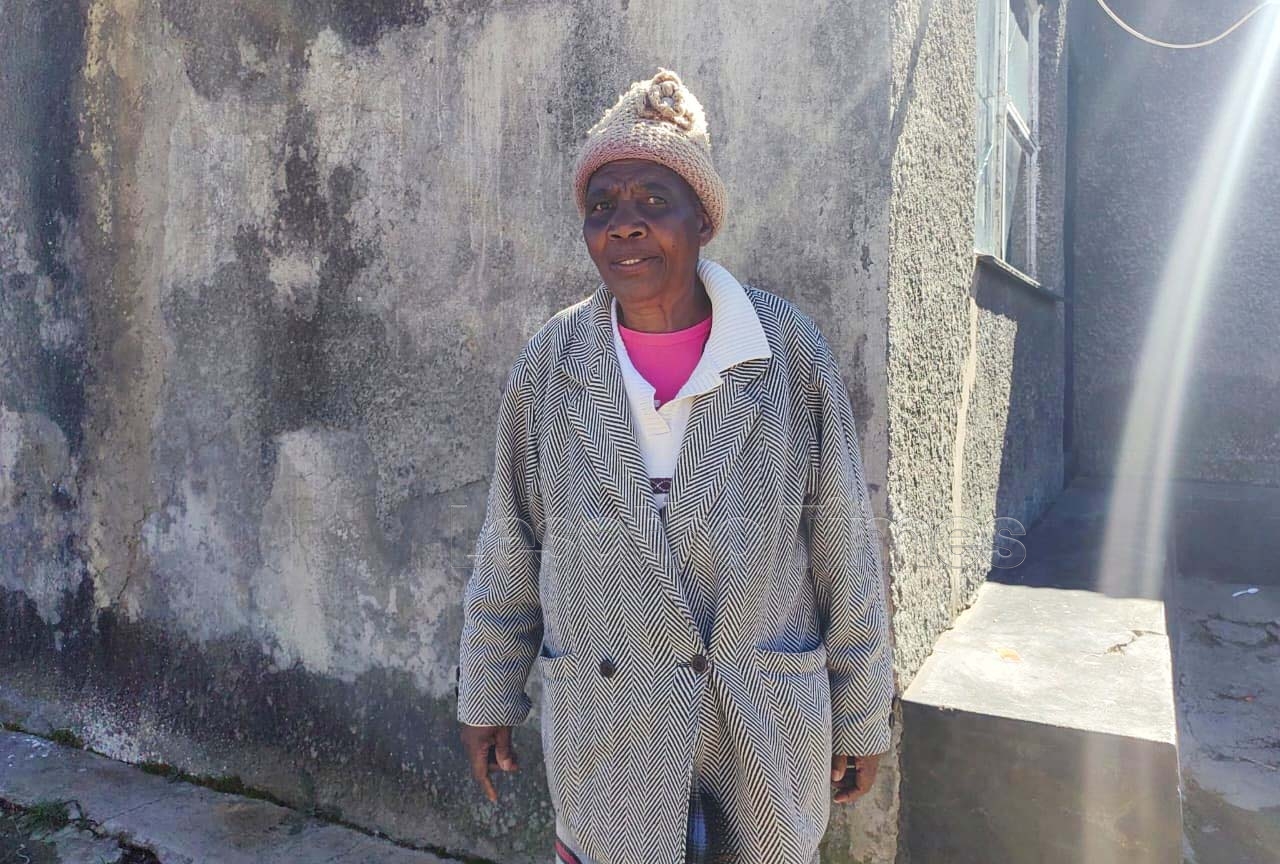Roads are meant to connect, uplift, and open communities to opportunity. They are the very veins through which a nation’s economy flows, linking villages to towns, and citizens to services.
Yet in Qoaling, Maseru, the story is tragically different. What should have been a tale of progress has instead become one of broken homes, shattered livelihoods, and abandoned promises.
The road project at Tsoapo le Bolila was intended to ease movement and stimulate economic activity. Instead, it has left at least 20 households in distress, their properties cracked, leaking, and crumbling under the weight of negligence.
The voices of elderly residents like 74-year-old Maneo Ntšike speak volumes about the cost of misplaced priorities and unfulfilled obligations. Ms Ntšike, once secure in her sturdy home, now lives in fear of collapse, huddled with her grandson in a single leaking room. Her lament — “developments are meant to uplift us, but this one feels like a curse” — captures the anguish of a community betrayed.
The tragedy of Qoaling is not just the damage itself, but the endless merry-go-round of accountability. The Maseru City Council (MCC), the contractor, and the Water and Sewerage Company (WASCO) all point fingers at one another, leaving affected residents stranded. MCC claims to handle cases individually, but residents allege that promises of compensation dating back to 2016 remain unmet. WASCO, for its part, disowns prior knowledge of the issue yet has billed residents thousands of maloti for water they insist leaked from burst pipes installed beneath the road.
This bureaucratic blame-shifting is unacceptable. Citizens are not asking for charity; they are demanding justice. When public institutions initiate development projects, they assume a duty of care. If homes collapse, if livelihoods are destroyed, accountability must follow swiftly and fairly. Passing responsibility from one desk to another only deepens the distrust between citizens and the state.
Qoaling’s plight exposes the human dimension of mismanaged projects. Families are not only losing homes — they are losing dignity. Tenants have fled cracked and mould-ridden rental units, stripping landlords of livelihoods. Children grow up in unsafe conditions, exposed to leaks, mould, and the constant fear of collapse while elderly residents endure cold nights and sleepless storms, uncertain whether their roofs will withstand the wind.
This is more than inconvenience; it is a slow erosion of security and well-being. When a grandmother is forced to share a cramped room with her grandson because the rest of the house is uninhabitable, we must ask: what kind of development is this? When property owners who once sustained themselves through rentals now watch their incomes vanish, can this be called progress?
Qoaling is a microcosm of a broader malaise in Lesotho’s public works. Projects are launched with fanfare and optimism, but oversight is weak, compensation is delayed, and accountability is elusive. Contractors disappear, records vanish into bureaucracy, and citizens are left to pick up the pieces.
Such patterns raise a pressing concern: are communities being forced to pay the hidden price of development? Infrastructure must never come at the cost of human dignity. Development is only meaningful if it improves the quality of life for citizens. If it, instead, destroys homes and livelihoods, then it has missed its purpose.
The time for half-hearted responses is over. The MCC and WASCO must immediately undertake a transparent joint investigation into the damage caused in Qoaling. Promises of field visits and insurance assessments, while welcome, are not enough unless they translate into prompt and adequate compensation. Affected families deserve not only financial redress but also proper structural repairs or relocation, depending on the severity of the damage.
Furthermore, Parliament’s Public Accounts Committee, already seized with the matter, must prioritise it as a case study in systemic negligence. How did compensation processes stall for nearly a decade? Why was WASCO unaware of leaks reported repeatedly by residents? Why is it that contractors vanish without trace, leaving a trail of destruction behind them?
The Qoaling road was meant to be a symbol of progress. Instead, it has become a monument to neglect. To rebuild trust, government agencies must act with urgency, empathy, and integrity. Development must not be something communities fear, but something they welcome with open arms. That can only happen if the state shows that it values citizens as much as it values tarred roads.
The case of Qoaling offers an opportunity for reflection. Lesotho must adopt stronger safeguards for communities affected by development projects.


Nikuv contract must be cancelled